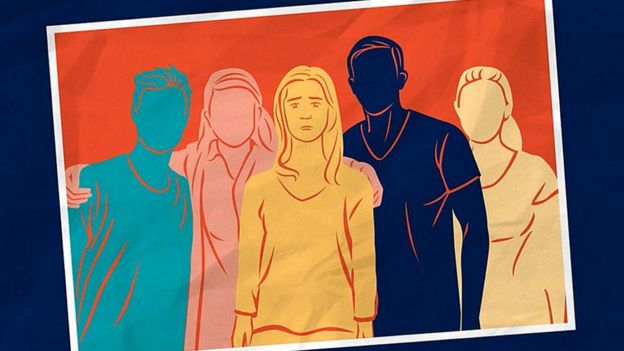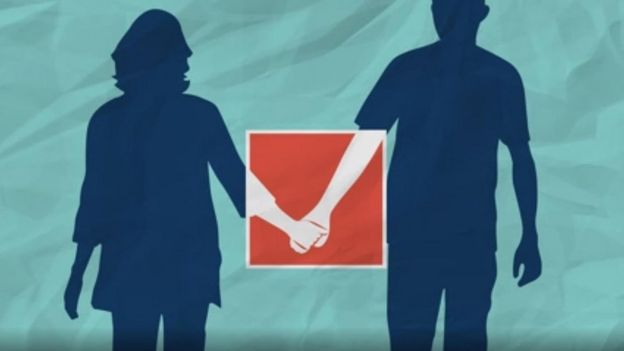We all feel alone at some point in our lives. For many it is temporary, but for some people that loneliness becomes chronic.
Several studies have linked chronic loneliness and social isolation with a higher incidence of diseases and an increased risk of premature death .
Scientists still do not know what the exact mechanism behind this relationship is, which is not necessarily cause and effect .
Is it loneliness that generates diseases or are diseases that make us more isolated?
But what the studies do make clear is that loneliness and social isolation are linked to illness, not only mentally, but also physically.
Some specialists have even suggested that its impact on life expectancy may be comparable to that of tobacco or obesity.
These are five aspects of our physical health that loneliness can harm, according to scientific studies:
1. More risk of cardiovascular diseases
Loneliness is associated with an increase of almost a third in the risk of suffering cardiovascular diseases, such as heart problems and strokes.
Nicole Valtorta, a researcher at the British University of Newcastle, studied this phenomenon and told the BBC that there are three potential mechanisms to explain this correlation.
 Image caption The feeling of loneliness is generated when your social relationships are not as you would wish.
Image caption The feeling of loneliness is generated when your social relationships are not as you would wish.
One is psychological – people who feel lonely most often are more likely to have depression, anxiety and generally feel more unhappy.
Another mechanism is biological – those who feel lonely may sleep worse, for example – and another is behavioral , perhaps they do not exercise as much or smoke more.
And of course these three factors linked to cardiovascular diseases can be combined and interact with each other.
2. Less ability to fight common diseases
A study of the universities of California and Chicago, published in 2015 in the journal PNAS, investigated the cellular effect of loneliness in humans and macaques and concluded that it can suppress the effectiveness of the immune system .
The academics saw that people identified as socially isolated had a 12% increase in the activity of genes called CTRA, which are involved in the immune response.
 Image caption The state of “hyperalerta”, triggered by the sympathetic system, increases inflammation in the body and reduces our ability to fight infections.
Image caption The state of “hyperalerta”, triggered by the sympathetic system, increases inflammation in the body and reduces our ability to fight infections.
They reported that in both macaques and humans that hyperactivity manifested itself in higher levels of white cells that participate in the inflammatory response and in lower levels of production of antiviral immunological proteins.
The hypothesis behind this phenomena is that humans evolved to live in a group, and when they are isolated for a prolonged period they can feel unconsciously threatened and remain in a state of “hyperalerta”, triggered by the sympathetic system.
This condition increases inflammation in the body and reduces our ability to fight infections.
3. Higher blood pressure
Another study from the University of Chicago concluded that people who suffer from loneliness are more likely to have higher blood pressure in the future.
Hypertension is associated with an increased risk of stroke, heart attack, kidney problems and dementia.
The study was published in 2010 in the journal Psychology and Aging .
4. More risk of premature death
 Image caption “Middle-aged adults have a higher risk of mortality when they have chronic loneliness or live alone than older adults in those same circumstances,” according to a 2015 study.
Image caption “Middle-aged adults have a higher risk of mortality when they have chronic loneliness or live alone than older adults in those same circumstances,” according to a 2015 study.
Social isolation and loneliness are associated with a 30% increase in the risk of premature death , according to a study by the Brigham Young University of the United States, published in 2015 in the journal of the Association for Psychological Science .
The research analyzed 70 different studies in which some 3.4 million people participated.
And they concluded that, contrary to what may seem, “middle-aged adults have a higher risk of mortality when they have chronic loneliness or live alone than older adults in those same circumstances.”
The authors believe that the study of the effects of loneliness on health is now in the same phase of research in which research on the impact of obesity was decades ago.
And they believe that the problem of loneliness will increase in the future.
The post 4 ways how loneliness can affect your physical health appeared first on Rava.
from Rava http://ift.tt/2FfvO0o
0 comments:
Post a Comment